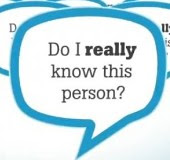A peer I respect, Martin Yate, author of the best selling “Knock Em Dead” books, recently posted a LinkedIn group discussion Are Résumés Obsolete? Résumé vs. Social Media Profile and he offered some very good points on the subject. This is a serious question and I’d like to share my thoughts with you.
Personally I do not think a résumé is obsolete - Today - but ask me this again in 10-15 years and I may have to rethink my point of view and offer a different answer.
What I tell clients, workshop attendees and people I meet who come to me for advice is this: an eye catching résumé in .txt format for electronic submission for ATS, in addition to a .doc and PDF version that can be emailed, snail mailed, overnight expressed, faxed and handed out in person, PLUS a social media presence (particularly LinkedIn) are all essential in conducting an effective job search. Social media is not yet a substitute for a résumé, rather it complements and expounds on a résumé.
Résumés
By this I mean a creatively designed, extremely well crafted, soundly written résumé that tells the story of who you are, who your were, and who you want to be, while carefully highlighting the pertinent fine points about your experience, expertise, achievements, value and potential to succeed in a new role is the quintessential tool for a job seeker looking to FIND a new job. But the résumé should be a modern, state-of-the-art tool and not one from the Stone Age – circa 1995-2005 and earlier.
A résumé, as long as you know how to get it beyond ATS - meaning you know which version to use and how to modify and adapt it for specific positions - is the best document to submit to jobs you find posted for the general public on job sites and company/recruiter websites. Some sites may accept your social media profile in lieu of a résumé, however today most do not.
A résumé, as long as you know how to get it beyond ATS - meaning you know which version to use and how to modify and adapt it for specific positions - is the best document to submit to jobs you find posted for the general public on job sites and company/recruiter websites. Some sites may accept your social media profile in lieu of a résumé, however today most do not.
Your résumé is also the tool to use when meeting with employers and recruiters at job/career fairs, and it’s also the tool you provide people you’re networking with because a résumé can be easily handed out or transmitted by them via email to people in their network or workplace who can advance your job search.
Most important, a résumé is the document you will be presenting in-person to every person you meet on a job interview, so it must WOW them. In many cases it should include a hyperlink to your social media, but I would not suggest printing your LinkedIn page and presenting it as a résumé during an interview.
To sum this up; the value of a résumé lies in its ability to introduce you to people you found in hopes of impressing them to interview you or pass your résumé along to other interested parties.
Social Media
 On the other hand social media is the quintessential hunting tool. But in this case you’re not the hunter, you are the prey.
On the other hand social media is the quintessential hunting tool. But in this case you’re not the hunter, you are the prey.
 On the other hand social media is the quintessential hunting tool. But in this case you’re not the hunter, you are the prey.
On the other hand social media is the quintessential hunting tool. But in this case you’re not the hunter, you are the prey.
Whereas a résumé is the optimal way to introduce yourself to people you find, the goal of social media is to allow talent acquisition hunters i.e. headhunters of all types and internal and contract recruiters in corporate and public sector HR departments to FIND you.
When you’re being hunted a properly constructed and optimized LinkedIn page is essential for success, especially if you rank among the Top 20% of candidates in your field. Therefore, a strong, searchable social media presence is as critical for people in this group as having a solid résumé to present once you are sourced and found. Once you are found you will almost certainly be asked to provide your résumé.
For the other 80% of job seekers you are less likely to be hunted for who you are. However if you have a properly constructed and optimized LinkedIn page you may be hunted for who you know. Once the hunter makes contact you can then follow up with a “WOW’ resume to catch that person’s attention and sow the seeds for future consideration for opportunities you may qualify for down the road.
Another reason a well constructed social media page complements a professionally prepared résumé is that social media offers validation of your value and potential in a way most résumés do not.
Social media allows you to display work product and valuable information, especially endorsements of your value and worth that are generally not included in a résumé.
So for now I recommend each job seeker have the most professional looking résumé and social media profile possible.
As usual I am available to offer a professional critique of resumes and social media profiles and offer thoughts on how to improve them. Just send your resume to perry@perrynewman.com. No cost/no obligation.













